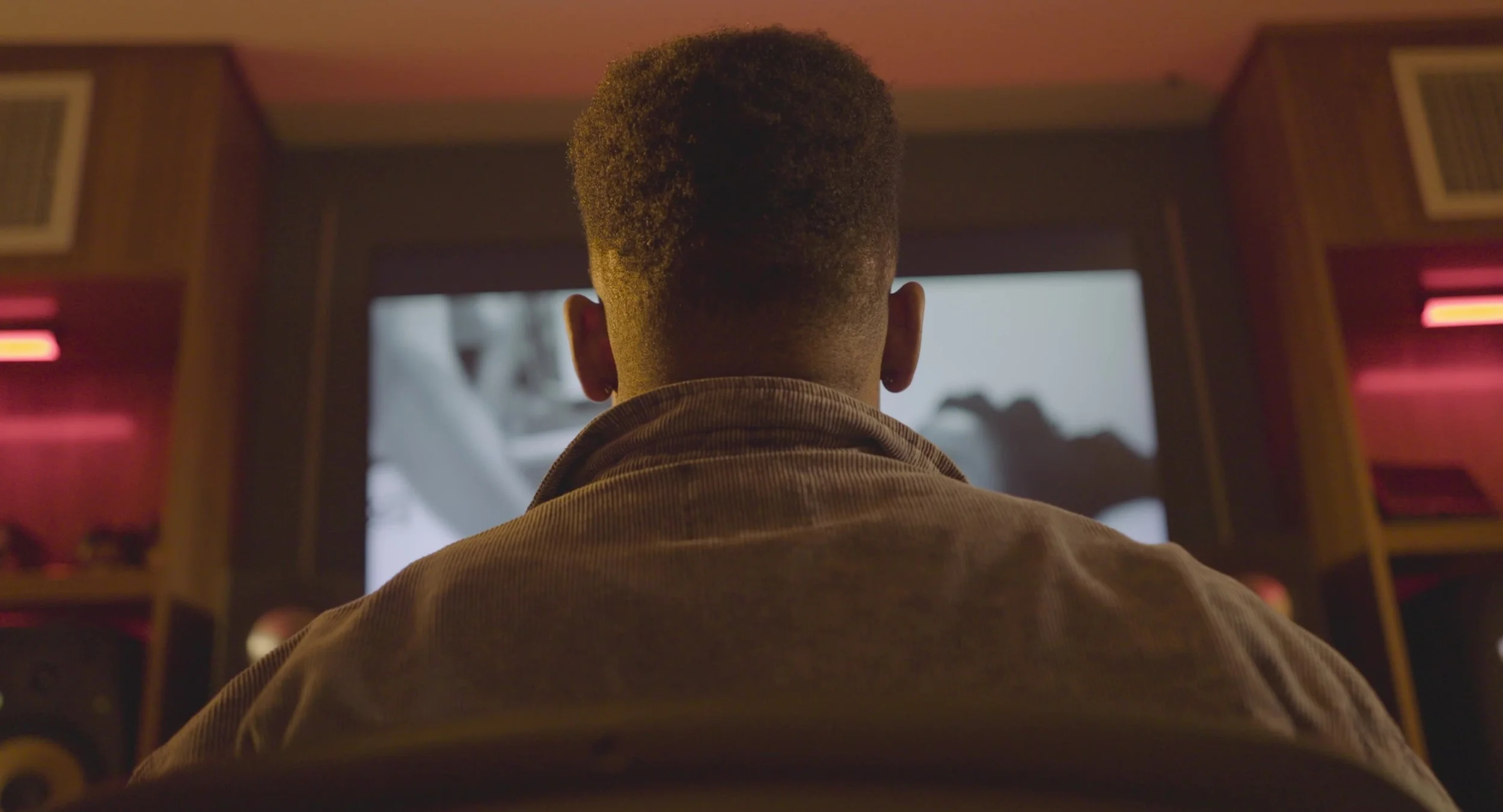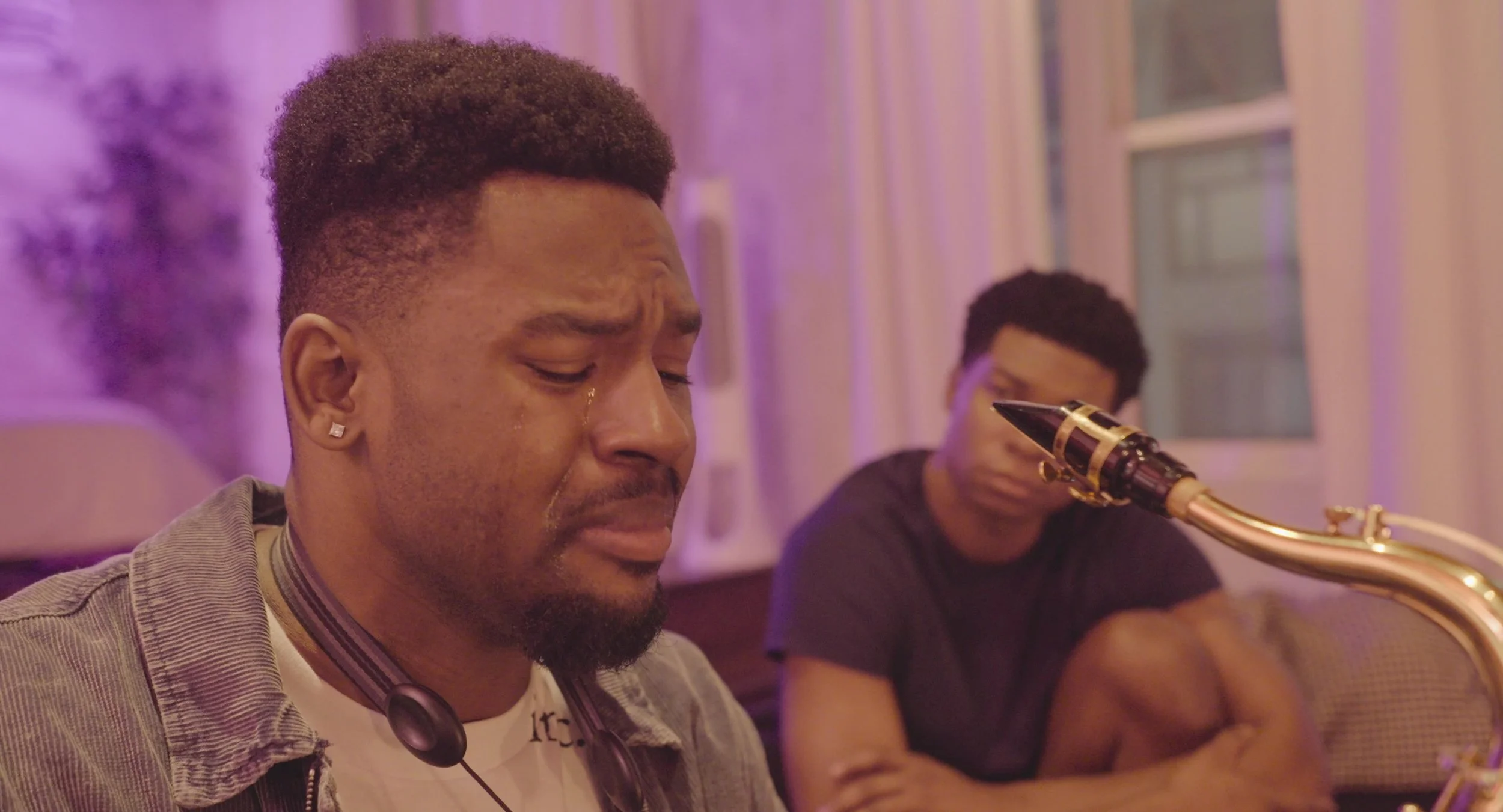




SCORED
Director's Statement by Robert Henry
Set in modern-day Los Angeles, SCORED is an emotionally-driven short film that follows Jacob, a young Black gay composer, as he navigates between creative expression and emotional survival.
Jacob shares both his home and creative workspace with his partner Bae, whose presence offers both tenderness and tension. Their relationship becomes the emotional core of the film— full of love, but strained by financial precarity, artistic compromise, and communication challenges. As they co-compose the film's score, the audience witnesses their evolving love language: moments of quiet reassurance, physical intimacy, intellectual partnership, and conflict resolution, all punctuated by the pressures of surviving and creating while queer, Black, and underpaid.
The film explores LGBTQ identity with intentional nuance, centering a romantic relationship between two Black men that is tender, complicated, and emotionally honest. Jacob’s character embodies the intersectionality of race and queerness, especially in how he's expected to bring emotional depth and "authenticity" to a film that commodifies Black trauma without adequately compensating or uplifting Black creative voices.
This tension reflects broader issues of diversity, equity, and inclusion (DEI) in creative industries. The white director, Cameron, repeatedly exhibits microaggressions— from lowballing payment to attempting to "jazz up" the score without understanding the cultural roots of jazz, to performing superficial allyship by pointing out his own queerness as a deflection. The story doesn’t paint Cameron as overtly malicious but rather captures how casual, unintentional microaggressions wear down marginalized creatives over time.
In contrast, Jacob’s partnership with Bae provides a counterbalance— a portrait of a healthy (albeit challenged) relationship, where both partners are committed to showing up for each other. Through conflict and connection, SCORED highlights how healthy attachment styles and love languages play out in real-time, in a way that feels grounded rather than performative.
Music is more than just a motif; it’s a cultural anchor. SCORED pays homage to the legacy of Black people’s influence on jazz, not just as a musical genre, but as an emotional language born of improvisation, resilience, and collective memory. When Jacob hears a saxophonist playing in Echo Park, the music becomes both a trigger and a tether, connecting him to his mother, his culture, and his own capacity to heal.
The tone of the film is introspective, emotional, and visually lyrical, guided by rich cinematography, ambient soundscapes, and an original score that reflects the inner world of a character trying to make peace with himself through music.
Ultimately, SCORED is about the reclamation of creative agency, emotional clarity, and cultural heritage. It is a film that asks: What does it mean to be the vessel for someone else's story when your own is still unresolved? And how do we preserve ourselves and our relationships in the midst of the noise of expectations, grief, and systemic inequity?
It’s a love story. A grief story. And most of all, a story about what it means to be heard.